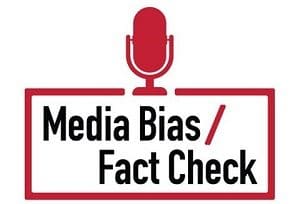As the new U.S. tax bill makes its way towards the House of Representatives for final approval and President Donald J. Trump’s desk for signing into law, WikiTribune looks at what it means.
The U.S. Senate passed Trump’s $1.5 trillion tax bill on Tuesday in what is the president’s first major legislative victory in office.
With it comes the most drastic rewrite to the country’s tax code in more than 30 years in what Trump described as a “giant tax cut for Christmas.” (The Times)
What is the new U.S. tax bill?
- The Republican Party (or GOP) worked on the new tax bill with opposition from the Democratic Party, but the bill “rocketed”through Congress in mere weeks, Reuters reported.
- In contrast, the last time Congress refurbished the U.S. tax code was in 1986 under former Republican President Ronald Reagan. The process took years and was drafted after months of open debate and public hearings.
- The 2017 bill faced a last-minute revote after it was found that procedural rules had been violated.
- It was supported along clear party lines: Republicans in favor, Democrats in opposition.
- The same goes for American citizens, according to the BBC’s North America reporter Anthony Zurcher, who also said “many Americans view the legislation as largely benefitting others.”
- Republicans say the bill, which introduces a sweeping tax cut for corporations, individuals and small businesses, will boost economic growth.
The major changes
- The bill will drop taxes permanently for corporations and temporarily for individual wealthy citizens from 2018. Meanwhile it will offer mixed, temporary tax relief to working American individuals and families.
- Corporate taxes will be set at 21 percent, instead of the current rate of 35 percent. Prior to the change, the U.S. tax rate was the 4th highest in the world, and for comparison, European countries average 18.35 percent, according to the Tax Foundation.
- Inheritance tax will be lowered, child tax credit will be expanded and there will be lower taxes on overseas profits.
- It gives business owners a new 20 percent deduction on business income and parents sending their children to private schools are set to benefit.
- By cutting taxes by $1.5 trillion over the next decade, the GOP tax bill will accelerate growth of U.S. federal debt, according to Axios. The debt would rise to between 98 percent and 100 percent of GDP by 2027, according to the Committee for a Responsible Federal Budget (CRFB), an independent, non-profit, bipartisan public policy organization.
- Measures attached to the bill also concern issues unrelated to tax.
- These include an item to allow drilling in the Arctic areas that have been protected since 1960 for environmental reasons, posing possible problems for Alaskan animals, and measures to repeal part of the Obamacare health system that imposed fines on Americans for not obtaining health insurance coverage.
Praise and criticism
- House Speaker Paul Ryan announced the vote in the Senate on Tuesday by saying: “Today we are giving the people of this country their money back. This is their money after all!” He praised the vote adding: “This is a good day for America.”
- Steven Rosenthal, senior fellow at the nonpartisan think-tank Tax Policy Center, said the bill was “ideally suited for commercial property businesses, where there aren’t a lot of workers, but there is a lot of valuable property around.”
- However, some critics see the tax bill as merely a means to benefit the wealthy and corporations. Democrats have severely criticizedthe legislation as they say it will widen the income gap between rich and poor.
- Democrat senator and Senate minority leader Chuck Schumer warned Republicans that they would pay a price for the “awful legislation” in next year’s mid-term elections. He blasted the bill as a “disgrace,” according to The Guardian.
- Maya MacGuineas, CRFB president, said in a statement that “the Senate tax bill would do too little to grow the economy and a lot to grow the debt,” adding that the organization is “hugely disappointed” about the “fiscally risky plan.”
What next?
- Americans will “wake up with a new tax code” on January 1, according to Speaker Paul Ryan.
- Trump is due to give a conference at 1pm EST (6pm GMT) on Wednesday if the House successfully signs the bill.
- Republican leaders in the House said they will next target welfare spending, with both Medicare, the federal health program primarily for the elderly, and Medicaid, the federal health insurance program for lower income Americans, on the table for cuts. The Washington Post has more detail on those potential moves.
Do you appreciate our work? Please consider one of the following ways to sustain us.
or
Left vs. Right Bias: How we rate the bias of media sources


“Republicans say the bill, which introduces a sweeping tax cut for corporations, individuals and small businesses, will boost economic growth.” Americans have been falling for this ever since the Reagan administration. Results: The US went from an overall quality of life rating of #1 when Reagan was first elected, down to #48 by the time Obama was elected, and we can no longer compete in the international market. The US then pursued the longest, most expensive war in this country’s history, and we can’t rebuild because our jobs are gone (over 5 million manufacturing jobs alone were lost since 2000). The US itself continues transitioning into just another third world labor state that discards those who are not of current use.